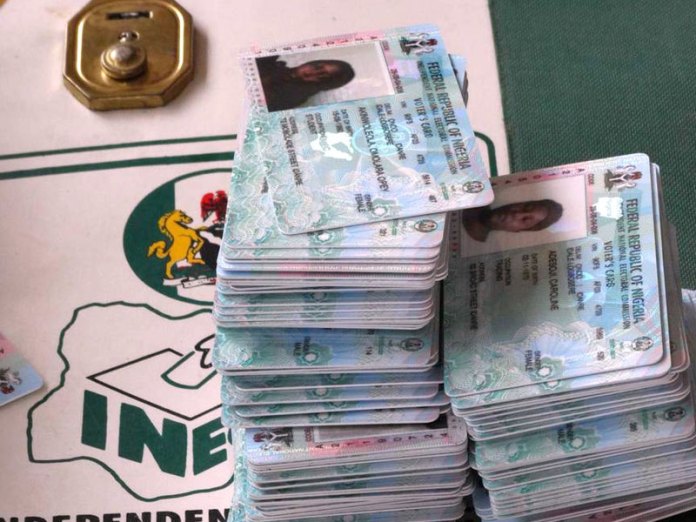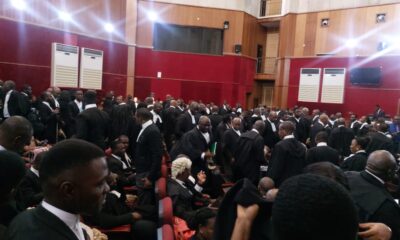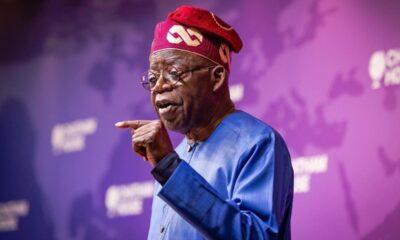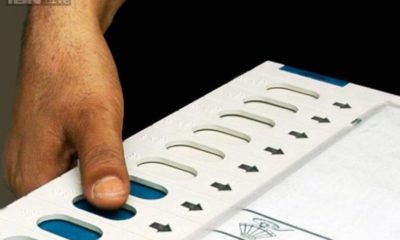The Independent National Electoral Commission (INEC) has said that it will apply the laws, especially the Electoral Act, of 2022 without fear or favour to ensure free, fair, valid, thorough, and transparent elections in 2023.
The electoral body affirmed that it was important for all stakeholders, especially the political parties to note the crucial features introduced by the new Electoral Act 2022 and the likely implications of those changes on the approaching elections.
INEC chairman, Prof. Mahmood Yakubu, revealed this at the 4th Abubakar Momoh Memorial Lecture with the theme, “Electoral Act 2022: Imperatives for Political Parties and the 2023 General Election,” in Abuja on Wednesday.
The helmsman of the Commission identified some of the vital changes put forward by the new electoral law to include: The conduct of early party primaries, technological differences in the electoral process, the commission’s power to evaluate the decision of returning officers, and over-voting based on the number of accredited voters.
Represented by the chairman of the Board of Electoral Institute, Abdullahi Zuru, the INEC chairman confirmed that the umpire has no chosen party or candidate and it shall only guarantee that valid votes count and the winners are determined solely by the voters.
“The usage of electronic devices such as Bimodal Voters Accreditation System (BVAS), INEC Voter Enrolment Device (IVED), INEC Results Viewing Portal (IRev), and other technological devices, are now lawfully allowed in the accreditation procedure for voters, collation of results and in the general conduct of elections.
“Please be guaranteed that these innovations are aimed at deepening the Electoral practice in our country and their optimal achievement in the just completed gubernatorial election in Ekiti and Osun States is an expressive testimony to their electoral significance. We shall only do more to strengthen their deployment in our election,” he said.
He expressed hope that the political parties would be devoted to assuring that the 2022 general election is “devoid of intentional violations to the 2022 Electoral Act, basically by enabling the electoral process to run smoothly thereby, cultivating a rich democratic culture and satisfactory election outcome.”
Yemi Akinseye-George, the guest speaker, put forward that politics is not anarchy and a game of disorderliness.
According to him, “Politics is no anarchy; it is not disorderliness; it must be punctuated by justice, fairness and orderliness.”
The professor of law also emphasized that politics must not be seen as a dirty game, indicating optimism that the 2023 general election would hold against all odds and referring to the passion shown for voter registration as an indicator of the fact.
While claiming that political parties must obey their own rules, he said: “the Supreme Court has agreed on numerous cases that political parties must heed their constitutions as the court will not permit them to act arbitrarily or as they like.”
Akinseye-George clarified that the lecture concentrated on the political parties because they constitute the major pillar on which democracy is established.
“Indeed, the achievement or otherwise of our democracy is related to the degree of enlightenment and ability of the political parties to accept the rule of law in their operations,” the scholar said.
He emphasized the constitutional requirements associated with political parties; selection of candidates and political party’s finances as empowered in the Electoral Act, 2022 as well as appointed leading judicial pronouncements on political parties and elections.
Also speaking, the convener of Nigeria Civil Society Situation Room, a body of over 70 Civil Society Organisations (CSOs), Ene Obi, petitioned INEC to reopen the halted Continuous Voter Registration (CVR) exercise at least for one month.
Obi noted that such a window would encourage those willing to participate in the exercise, but could not due to technical issues and other glitches.
She said: “The civil society organizations are endorsing and petitioning INEC to open registration because a lot more want to register and we don’t want to shut down their enthusiasm. So, they must reopen it even if it is for one month.
“More than 11 million of those who conducted their forms online were unable to complete their registration. That means you are losing 11 million electorates. That’s a lot, and INEC should address it. We are still soliciting that more of them can still register. They should open it even if it is a window of one month.”
Earlier, in his welcome statements, the director general of the Electoral Institute, Sa’ad Idris, said the theme for this year’s lecture was carefully selected considering the condition and requirements for executing the 2023 general elections under a new law (Electoral Act, 2022).
Idris said the speech aims to look at the significance of the new electoral law for not only the Commission but also, in particular, the 18 political parties that will be fielding nominees for the numerous elective offices in the next year’s polls.
He said, “This topic is also very apt, to train the Executives (National Chairman and Secretaries) of the 18 Political Parties on the several Sections of the new Act and the crucial implications ingrain in many of its Sections.
“The tragic prevalence of many legal cases occurring even from the pre-election period up till after the conduct of the elections, indeed have at many times gave rise to a lot of challenges to the electoral process and our country’s political advancement at large.”


 Billionaire Watch3 weeks ago
Billionaire Watch3 weeks ago
 Startups4 weeks ago
Startups4 weeks ago
 News4 weeks ago
News4 weeks ago
 News4 weeks ago
News4 weeks ago
 Bitcoin4 weeks ago
Bitcoin4 weeks ago
 Naira4 weeks ago
Naira4 weeks ago
 Forex3 weeks ago
Forex3 weeks ago
 Treasury Bills4 weeks ago
Treasury Bills4 weeks ago


























